For Whom The Blog Tolls
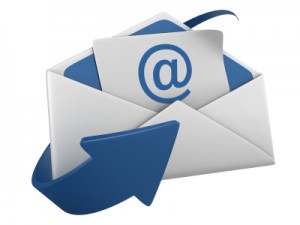 I received a thought-provoking email from a reader this morning that immediately spurred my next blog post, its thoroughness and the points it pondered being:
I received a thought-provoking email from a reader this morning that immediately spurred my next blog post, its thoroughness and the points it pondered being:
A) Completely relevant to my (and any other author/writer’s) blog
and
B) Timely, as I had been considering my blog, the fact that I really would like to blog about “non-writing” related thoughts, experiences, etc. and with a blog name like “Rob on Writing”, well, I feel my posts should focus on the writing (at least mostly—I think readers forgive the occasional foray into uncharted territory).
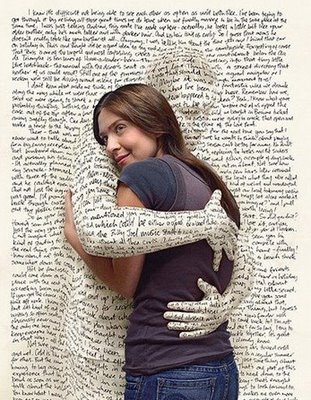 First, the props. The email was from a reader I met on Twitter. His name is Stefano Scaglione (@Steve74it) and I use his name (with his permission) only because he was going to post the text of his email in the comments but felt it was more appropriate to email me first, saying if I felt so inclined I could post them. Stefano is one of those rarities in my author-heavy Twitter realm in that he’s a READER. A pure reader. Heck, that nearly makes him Ahab’s great white whale!
First, the props. The email was from a reader I met on Twitter. His name is Stefano Scaglione (@Steve74it) and I use his name (with his permission) only because he was going to post the text of his email in the comments but felt it was more appropriate to email me first, saying if I felt so inclined I could post them. Stefano is one of those rarities in my author-heavy Twitter realm in that he’s a READER. A pure reader. Heck, that nearly makes him Ahab’s great white whale!
He also reads my blog. So his email was written from a reader’s perspective seeing the things I post for writers and wanted to talk about the overlap of the two and where it might be prudent to not mention certain things that reader’s shouldn’t see or, perhaps better yet, start a second blog.
The funny thing is that “B” above is no kidding already been weighing on my mind. The problem is, I don’t think it solves the potential issues Stefano brings up (which I’ll list in a moment). I mean if I blog for writers, there’s never going to be any guarantee that writers are the only people reading my blog. And my second blog wouldn’t do me any good as a writer because neither would it fix the “writer giving out too much information” nor the “Rob wanting to write on non-writing topics”—well, it would fix the latter; that was my whole point in creating a new blog (however, it does elicit thoughts on what that blog should be, if or how closely it should be tied to the current blog, etc.).
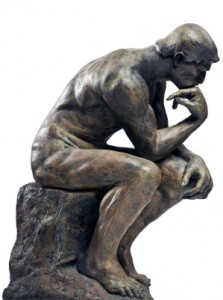 On to Stefano’s thoughts and concerns. First, another rarity: he wanted to help me, R.S. the writer. He took the time. What an increasingly unheard of thing to do. Part of my inclusion of him here is to honor that gesture.
On to Stefano’s thoughts and concerns. First, another rarity: he wanted to help me, R.S. the writer. He took the time. What an increasingly unheard of thing to do. Part of my inclusion of him here is to honor that gesture.
1) The pricing issue. I issued Dark Prairies at $4.99, which I considered myself to be the fair asking price (most articles I’ve read say that still keeps it within the “impulse buy” range, albeit the high end) and I could live with it (my personal feeling on the book is that it’s good enough to compete in a higher price range but there are a lot of considerations we unknown Indies go through in making pricing decisions.).
Stefano has read everything I’ve published (even my short story and letter/eulogy to my son who died of SIDS). He’s a true R.S. Guthrie fan, and he could not wait to buy Dark Prairies as soon as it hit the digital shelf. But when he moused over the $4.99 price, he drew back in horror (not really horror; I’m a writer, I need to keep this a smidge titillating). But he did draw back. His first reaction was to feel that $4.99 was too much. And he’s a fan.
Now he freely admits to feeling a bit of guilt at that after reading my post—he does not disagree with my feelings that five bucks is not a lot of money for a good book from an author’s perspective—but he wanted to share his reaction with me in terms of what the readers might feel. My words: consumers have every right (and in a free society, practically a duty) to seek out the best deal, wait for bargains, etc. Especially in this economy.
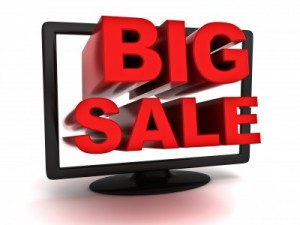 So I get it, I truly do. Just as many times authors forget that other authors are also readers, so too do readers (as one example) sometimes forget that authors are also consumers. Starving writers are even MORE driven by bargain shopping. 🙂 I have a story I want to share on this subject: in a multi-author promotion I was in a while back, all authors were encouraged to buy a copy of each other author’s book. This was back far enough that most of us were priced at 99 cents, myself included I believe. I went through happily one-clicking away the purchases until I hit an author whose book was, I believe around $4.99 (ironically enough). I pulled back just as had Stefano. So as a writer, I was not immune to the collective price mood of the market. Now in all fairness, I’d never read this author before and Stefano has professed to like my writing, but we have to think about the reaction of the first-time buyers. We are unknown quantities. The new tenant on the block.
So I get it, I truly do. Just as many times authors forget that other authors are also readers, so too do readers (as one example) sometimes forget that authors are also consumers. Starving writers are even MORE driven by bargain shopping. 🙂 I have a story I want to share on this subject: in a multi-author promotion I was in a while back, all authors were encouraged to buy a copy of each other author’s book. This was back far enough that most of us were priced at 99 cents, myself included I believe. I went through happily one-clicking away the purchases until I hit an author whose book was, I believe around $4.99 (ironically enough). I pulled back just as had Stefano. So as a writer, I was not immune to the collective price mood of the market. Now in all fairness, I’d never read this author before and Stefano has professed to like my writing, but we have to think about the reaction of the first-time buyers. We are unknown quantities. The new tenant on the block.
Then again, Stefano’s reaction also serves to reenforce the reality of the undervalued and fluctuating book market and the price points. As I’ve mentioned, for me the setting of my price also has to do with taking a stand to help eradicate the “eBooks are worth 99 cents” market mentality wherever it exists (cheaper prices being fine in a promotional context, not fixed).
2) My comment about my goal to “not read reviews”. I think Stefano took umbrage with this mostly because if a reader takes the time to write a review (whatever the flavor or rating), it comes off as rude (and probably more than a little egotistical—my words, by the way, not his at all) to say “I don’t read reviews”. However, I did briefly explain my philosophy: the book’s been written and published; there’s nothing I can change. What I didn’t mention is this:
Reviews should mostly be for other readers. Of course artists care how their work is received, but I have an editor and beta readers and proofreaders. My wife (thank God) is an excellent, sometimes even brutally honest, critiquer. I have another author in my life who also gives excellent feedback. I have on occasion garnered good suggestions from reviewers (good reviews and bad: recently one of the worst reviews I’ve ever had—one that was literally filled with lies about grammatical unreadability and other “vague” slams with no examples—actually did mention something that I DO, that I intentionally do, and I thought about it and have incorporated the change in my writing habits) 99% of the time, reviewers aren’t actually writing critiques. Critiques involve in-depth constructive criticism with suggestions on changes, ways to improve writing, etc.
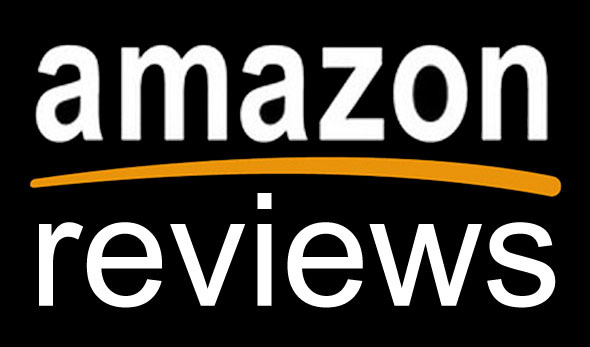 I will also admit that poor reviews sting (and I don’t need to read the reviews to know I got a poor review—I can look at the counts of “stars”, which doesn’t require reading crap like I read from the reviewer mentioned above. I’ve also had instances where someone raged in the comments of my blog and clearly raced over, gave my book a single star, and had the nerve (or stupidity) to literally quote from his blog comment. I’m Scottish. My temper can flare, particularly in this world of Internet anonymity where people say things they clearly would think twice about saying were they face-to-face with a person. So there are myriad reasons for my (by the way, do not forget, unsuccessful) idea to not read reviews.
I will also admit that poor reviews sting (and I don’t need to read the reviews to know I got a poor review—I can look at the counts of “stars”, which doesn’t require reading crap like I read from the reviewer mentioned above. I’ve also had instances where someone raged in the comments of my blog and clearly raced over, gave my book a single star, and had the nerve (or stupidity) to literally quote from his blog comment. I’m Scottish. My temper can flare, particularly in this world of Internet anonymity where people say things they clearly would think twice about saying were they face-to-face with a person. So there are myriad reasons for my (by the way, do not forget, unsuccessful) idea to not read reviews.
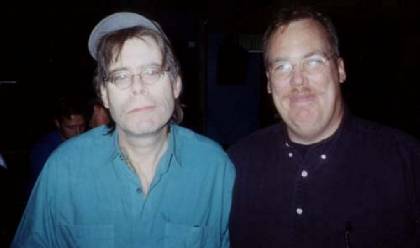 Overall, here is the realization I came to: I don’t write anything on my blog I would have issue with a (pure) reader/consumer reading. If you’ve read my blog about meeting Stephen King, you know I paid $600 to have him treat me like he’d rather piss on me than stand next to me. I still bought Mile 81 (which sucked, but my feelings about his writing are separate from my feelings toward him as a human being and/or celebrity). I’ve read Russell Crowe is a jerk. I don’t know that personally but even if he is, I’ll go to every movie he’s ever in. Unless he’s a pederast, or murderer, or rapist, I doubt his personal life or attitude is going to influence me too much if I truly enjoy his work.
Overall, here is the realization I came to: I don’t write anything on my blog I would have issue with a (pure) reader/consumer reading. If you’ve read my blog about meeting Stephen King, you know I paid $600 to have him treat me like he’d rather piss on me than stand next to me. I still bought Mile 81 (which sucked, but my feelings about his writing are separate from my feelings toward him as a human being and/or celebrity). I’ve read Russell Crowe is a jerk. I don’t know that personally but even if he is, I’ll go to every movie he’s ever in. Unless he’s a pederast, or murderer, or rapist, I doubt his personal life or attitude is going to influence me too much if I truly enjoy his work.
Yes, I realize I am not at that level, but to me the concepts are the same. (Although at this early stage of my career I clearly don’t want to be establishing myself as a giant asshole.) I don’t believe I write (nor did Stefano say or imply) derogatory things about reader/consumers and I never would (as a collective—lying reviewers being perhaps occasional exceptions). Also, much of what I write I would want book readers to see. After all, they are the ones considering a book, what went into creating it, and even need to be the ones considering the comparisons (like a venti-sized Starbucks latte costing more—or the same—as a book). In other words, I realized I don’t just write for authors.
My bell, I’ve realized, tolls for all.
~~~~~~~~~~~~~~~~~~~~~~~~~~~~~~~~~~
The blank page is dead…long live the blank page.
~~~~~~~~~~~~~~~~~~~~~~~~~~~~~~~~~~
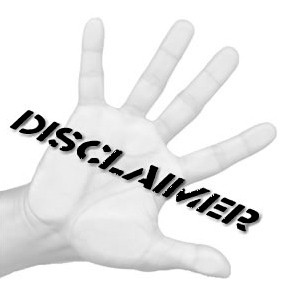 Author known to use spontaneous satire, sarcasm, and unannounced injections of pith or witticisms which may not be suitable for humorless or otherwise jest-challenged individuals. (Witticisms not guaranteed to be witty, funny, comical, hilarious, clever, scintillating, whimsical, wise, endearing, keen, savvy, sagacious, penetrating, fanciful, or otherwise enjoyable. The Surgeon General has determined through laboratory testing that sarcasm can be dangerous, even in small amounts, and should not be ingested by those who are serious, somber, pensive, weighty, funereal, unsmiling, poker-faced, sober, or pregnant.)
Author known to use spontaneous satire, sarcasm, and unannounced injections of pith or witticisms which may not be suitable for humorless or otherwise jest-challenged individuals. (Witticisms not guaranteed to be witty, funny, comical, hilarious, clever, scintillating, whimsical, wise, endearing, keen, savvy, sagacious, penetrating, fanciful, or otherwise enjoyable. The Surgeon General has determined through laboratory testing that sarcasm can be dangerous, even in small amounts, and should not be ingested by those who are serious, somber, pensive, weighty, funereal, unsmiling, poker-faced, sober, or pregnant.)
“Big Sale” Image credit: amasterpics123 / 123RF Stock Photo



What is a collection of words worth? How much is a person willing to pay for it? On paper, much more than in a computer file. It seems that consumers value paper and a jacket very highly. Yet, the cost of paper, ink, and printing is far less than the rent the author paid while writing and editing that collection of words. Add in the food consumed, the utilities used – all the costs of living – it seems that the true cost of the eBook isn’t much different than the cost of the paper one. Five dollars doesn’t seem like too much, does it?
No, $5 IS a bargain. Unfortunately John Locke and crew made their millions convincing the public that to pay anything more than a buck for a digital book was somehow outrageous. After doing my bit of market price-impact research (i.e. lower my book to a price where I might as well be sitting on the fucking street with a tin cup of pencils in hand) for the cause, pockets bare from the money I shelled out for this “once a year ad” that I will NEVER make back, not even in sales rankings I’m betting, I’m thinking of buying a Winnebago and selling my books across the continent. Living on the road, as it were. The digital revolution is fine but I’m beginning to think finding all the needles in the infinite growing haystack of zeroes and ones is a near impossible task.
I’m wondering now if “this economy” isn’t responsible for lack of sales more than we think? Rick and I went to our favorite restaurant in Gun Barrel City (don’t laugh) last night for our annual anniversary dinner and we and another couple were the only ones there. This was shocking, as we have always had to wait to get a table. Is this an indicator? Who knows. I do know for sure there are many books I’d dearly love to buy and read, but I have to just read descriptions and leave the site drooling as our budget is so tight. Aside from that, great post, kiddo!!
Thank you. You always make me feel better. I think you may be right. Who’s to say? I lost my crystal ball years ago and the only think it ever did was roll off its stand and claim the end was near.
BTW, congrats on the anniversary!. And I’m from, uh, Wyoming—you think I’m going to laugh at “Gun Barrel City”? In my hometown you can still wear a gun on your hip into a bar. Please. 🙂
All I have to say is that the lot of you who hesitate at $4.99, be grateful you never lived in Australia. Until ebooks became readily available here, the standard price for a book was $22 (still is, for a paperback). Yes, you read that right, but I’ll spell it out just so we can be clear – twenty two dollars. Which for us would have been even more in US dollars, until the recent shift in the exchange rate. And I still spend that kind of money on books from time to time to support our local bookstores (especially the one where my writer’s group meets) instead of sending that money offshore where it doesn’t benefit my own country. So forgive me if I think $4.99 is a basement bargain deal. Hell, I think $10.99 is a basement bargain deal. Perspective is clearly everything, and from where I stand, $4.99 is not something to complain about.
And, as a reader, a $0.99 book is not only NOT worth my money, it’s also not worth my time.
1) I’m not a writer! I do edit, but technically, I’m a reader, not a writer 🙂
2) When I write reviews, I always gear them toward providing the author with reasons why I might have a problem with the book, especially a “bad” review – I didn’t used to, but since I’ve met authors, I’ve always tried to provide constructive criticism AND a positive somethin’ somethin’ if I can find one… 🙂 I guess I would feel bad if I put that sort of effort into writing my review only to discover that most authors, as a matter of course, ignore their reviews. *sigh* 🙂
3) ummm… Oh, pricing! Yeah. Well, you know my opinion as a dirt-poor person… Heh. I always try to get ’em free if I can, just because my medical bills in most months come close to equaling our rent payments, but I’ve ALWAYS ALWAYS made room in my budget to buy books. Imagine my THRILL to be able to get SO MANY for so LITTLE when the cost went down – no more buying them used at the Salvation Army for a quarter! wOOt! BUT… yes, $4.99 is a good price for an ebook for an author that is known. I recently posted on my blog my opinion on price points – I think it was close to two weeks ago, a “Tell Me Something Tuesday” post, if you’re curious. Shouldn’t be hard to find, since I don’t post that every Tuesday. 🙂
Hi again, Katy! Here is my first thought: you are choosing to “go the extra mile” with your reviews (i.e. offering a bit of your professional advice gratis—meant for the author). In my experience, you are one in a hundred. Plus, as I mentioned, I (and most authors, I would hope) already have an editor. So when I see a “reviews” section (even before I was published) I assume it’s for the other readers to make an informed decision, not the writer. I don’t peruse a movie review site and think “I’ll bet Bob and Harvey Weinstein must read this all the time!” Movie producers have focus groups, entire staffs devoted to rewrites, etc. I think it’s wonderful what you do, but I still think a review section is more for other readers.
As far as the cost/price point, again, I sympathize, but I don’t think anything under five bucks for a book should cause you anything but joy. And of course I am sure you get a lot of use out of your public library card, too. I’m not advocating $10-20 for a book, like the old days. But no one will ever convince me that a book should be lowered to 99 cents other than promotionally. I feel any book under five dollars is a frugal buy as long as you do your research, read the sample, know you like the author, etc. I understand your budget issues, I do. But you said it yourself: you still set aside some money for books. I wish gas was 99 cents a gallon (oh how I wish that), but I can’t fault Shell or Mobile for using honest market analysis to set a fair price. If I can’t afford $3.99 per gallon, I need to find other ways (fuel economic car, carpooling, etc.) as I know you’ve done with books. You know personally how I feel about folks that are having a hard time affording books. I think everyone should be able to have the opportunity to read. 🙂
I believe in the Walmart pricing theory. Keep the price under five dollars. People will spend $4.99 as easily as $1.99 or $2.99 as long as it is below that critical five dollar bill.
I agree. And that’s what the theory says. But Jo V. recently asked the question “has that mentality changed in this current economy?”. I think it has, to a point. But I don’t see Walmart changing their “under five” prices across the board to “dollar store” and I don’t think authors should either. 99 cents for a book sickens me, it really does (sans promotion).
A critique does not actually involve any sort of suggestions. A critique just takes something apart and looks at the pieces of it and explains them, good and bad. When you go to the part where you are suggesting things, you’ve gone beyond what a critique is.
True, by definition of the word (to criticize or submit criticism). However, like all things in the world, it depends on the environment, rules (as in a workshop or class), and most importantly to me, the relationship between you and the other writer. I subscribe to the notion “don’t just present a problem, offer a suggestion as well”. With specific issues, I will often offer an example of what I mean. If it helps exemplify the criticism, and it provides fodder on which the writer can learn and build, call it a suggestion, call it an example, but I care less for Webster definitions and semantics than I do helping a writer improve.
Also, doesn’t much criticism imply suggestion? “Your paragraphs are too long.” (implied suggestion: “shorten some of your paragraphs”); “You repeat words too often in many areas, sometimes using them two or three times in as many sentences.” (implied suggestion: “Do not repeat words, rather use another word that means the same thing.”). Frankly I think a criticism IS a suggestion in disguise of implication.
I think it’s great that you try not to read reviews, actually – especially given the recent ridiculous flair-up in self-published authors acting like spoiled brats and arguing with reviewers, or worse. It’s not unprofessional to read your own reviews, but it is unprofessional to try and tell people their opinion is wrong (even if it is!) Therefore, I think your behavior is commendable. And I agree that readers who write useful critiques are rare, although I wish there were more of them.
I’m always thrilled when I find a book in the bookstore that costs three bucks. I’m broke as a joke, but I’ll pay up to ten for something I REALLY want, up to about eight for something I am pretty sure I’ll read at least twice, and five is a great price for, say, a diverting airplane read. I maintain that new books that cost a dollar represent a lack of trust on the part of the writer that their work is worth more, or else (worse) just a desire to sell as many as possible. Quality over quantity. How many times does it need to be said?
Here is how I see it. Unfortunately this applies to most things not just authors
Until a person gets their break. i.e Big selling song, Big selling movie, Big selling book, Big selling whatever….
Most consider them a nobody, a face in the crowd, a wannabee even though they may bring the same quality if NOT better than those who garner the limelight
Until a person achieves that 15 minute of fame, most won’t pay what they would for a Stephen King, James Patterson, etc etc household name because they are seen as nothing but a face in the crowd
Most assume that if you are a household name you can command X amount per album, song, movie, book etc etc.. but if they don’t know you from jack, heck if they know their postman more than you… good chance is they are going to balk at any price that even comes close to what household names are charging.
So bringing this back around to indie authors. Truth is there are indie authors popping up all over the place quicker than a game of wack o mole.
Each one assumes their work is worthy of x amount and it very well may do, but unfortunately until they can breakthrough with that winning book, there nothing more than another indie author touting how great their book is. Go on twitter and you will hear it ALL day long “Buy my book” etc etc…
Having a long background in marketing, i’ve seen a large number of people create products and then scratch their head as to why its not selling. When most products and services that do well… do well because the person found out if it was what people wanted.
As shallow as that may sound as yes people should be able to write about whatever they like and it should sell but that isn’t what happens. The greater percentage of readers today are women not men, most women don’t read westerns, they read romance, thrillers and paranormal.
So chances are if anyone writes outside of that, they are going to have one heck of an uphill battle and then if you add to that challenge trying to charge what a number of household names charge for kindles, you’ve really got your work cut of for yah.
You know I’m passionate when it comes to the subject of eBook pricing. We’ve talked about it many times. Like you, I feel the books at the 99 cent level belong there only under a promotional basis. I hope that one day in the near future even that will change where promos will only go as low as $1.99, leaving the 99 cent’ers the yard sale, bargain basement, get-what-you-pay-for books. Like everything else in the market, from toothpaste to lawyers, to doctors, if it’s cheap there’s usually a reason for it. Why should books be any different. Only because it’s what book buyers have become use to, have they been stuck on the lower end of the price scale and, unfortunately, it’s up to you, me, and every other author to break that stereotype, suffer through it financially in the meantime, to bring the price level back up to pre-John Locke era where it belongs. Now I like a bargain just like anyone else but last month I paid $9.99 for Fifty Shades, Book One, and then another $9.99 for Book Two (never bought Book Three). The irony is that E. L. James WAS an unknown when she came on to the scene with these books. I wonder how many other consumers paid the same $9.99, yet recoiled at paying $4.99 for some other unknown author. If readers want to read it, they’ll pay the list price. The real issue, and problem, is getting the book in front of the reader. That’s the million dollar question – how do you do it? I don’t know that answer but what I do know is, it’s not going to happen just by placing your product for sale at 99 cents. Especially YOUR books. Your books are too well written to suffer that.
As far as reviews. I have always left a review with the mindset it was to inform another reader, NOT to critique the author. However, one can’t help but highlight the good and the bad found with the book within the review. From typos to not feeling any connection to the characters. If the author reads the review, I would hope they would re-read and correct the typos. Anything other than that, the review is how I read it and should not be taken as criticism by the author but as an opinion and we all know how many there are of those out in the world.
Lastly, I don’t think you should feel limited to only write about “writing” on your blog simply because of the title. You always write from your heart on whatever subject you feel you are driven to write about that day. I love your writing. Whether you’re giving us your experience, an antidote or educating us – it makes my day to see my email shout out that R.S. Guthrie has posted on his blog. So write, write and write more. I’ll gladly read anything you have to say 🙂
Hi Rob and everyone, I’m happy about the debate this post (and my email) has generated. Many of you have raised interesting points that would deserve a single reply, but I’ll try to add something without replying to every comment
In my thoughts the pricing and blog issues where somewhat related, I try to explain better.
Like many of you I don’t think 4.99€ is too much for a quality book (the matter is difficult for an author I don’t know but this would lead us far and maybe with Rob can try do discuss that later as he is new to many potential readers), and fortunately I still can afford it.
I was saying 4.99€ is a right price but… I drew back in horror 🙂 why?
The John Lock effect? (I’d add the Kindle Daily Deal effect too, overpriced classics and famous authors at a low price…) not exactly, let’s say it was a side effect!
More a KDP Select effect. My psychological price to buy Rob’s book on day one was 2.99$, I mean to buy it and do not read it for many weeks or months as my TBR list is really long, but at 4.99€ I started thinking that in 90 days the price would have gone down or even FREE! And Rob discussed his strategy here a few posts ago (now you see the relation?).
After a week I bought it at my desired price 2.99$ (feeling a sense of guilt being a fan and having always thought that everyone has to be paid enough) and a couple of days later the price was lowered to 0.99$, but at that point I was already reading it (yes it went on top of my TBR list because after reading the excerpt I realized it’s a really good book) and I had what I wanted at my desired price so I could not complain… but what if I had bought it at full price and it was still laying in the line?
I wrote my email to Rob because I’m really sad that his book is not selling as it deserves, and to give some input that might be useful to understand other readers starting from my experience (that of course might be completely different)
After reading this blog post I made some other considerations one of which is:
my buying strategy, borrowed from traditional publishing/bookstores, is still valid for indie authors (that are not paid in advance)?
I mean, if I don’t support adequately the authors I like, they might stop publishing their work if not even writing.
So, to get an ebook at the lowest price is really my main interest as a reader? (That said I know most of the authors I am reading now thanks to KDP Select)
The review issue is well described by Katy Sozaeva and Trish Gentry so I have not much to add on this point, only one thing to Rob: I agree that once the book is finished it’s finished, but the good thing with ebooks is that you can easily correct typos or major problems (that might be with pointed out in reviews) with little effort.
Regarding the second blog, I agree it would not be the solution, but you have to find a way to retain you readers, collect their emails etc. letting them know you are publishing a new book in three, two, one month/week etc 🙂
I’d be glad if my words should generate some debate (as it seems from previous comments) and not only a chorus of “Rob go on like this” because I really care to help Rob sell more, this is the meaning of my outburst not a mere “the price is too high” complain (which Rob seems to have well understood!)
Have a great week!
Stefano
I just read this blog, and it mirrors my latest blog that discusses pricing. I can certainly appreciate from a reader’s perspective/consumer’s perspective how one wants the best price one can get, however as vendors we have to know when to walk away from the table. On all my new books, my philosophy is to keep the price stable, not do freebies, and let em sell what they sell. My catalog is large enough now so that free books are available, cheaper(er) books are available, and occasionally a sale book will hit for a day or two – but I think we as VENDORS (as opposed to authors) have to avoid creating a self-reinforcing downward price spiral on our work. I’ve priced from $2.99 to $6.99 and saw no real difference on revenues between $2.99 and $4.99. I’m seeing slower sales on my book at $5.99, but that’s okay – it’s an experiment, and if it doesn’t sell at $5.99 over time, I can always drop it to $4.99 at some distant point in the future. Besides which, in September I will have another one come out, and then in Oct another one, and in Dec another one. So if someone wants to wait months to maybe save a dollar, that’s fine by me. Knock yourself out, I say.
I’ve read half of Dark Prairies so far, and it’s one of the best indie books I’ve read. But then again, life isn’t fair, and I’ve noticed that the best books are rarely the biggest selling, and the biggest selling are rarely the best. So I think using price to sell is a flawed gambit in the long run if you hope to build a brand of any kind. That’s my personal feeling – you need to price to where the work is perceived as a value, but no lower, and you need to focus on quality, not quantity. Price selling assumes that all books are equal. They are not. Some are really good and I’d pay more for. Some suck and I’m bitter because I wasted time on them. Books are no more equal than films, or cars, or any other product. The sooner we start understanding that as VENDORS, the sooner we will have a more sustainable model to use as authors.
Selling books is being a vendor of books. Being a publisher is being a manufacturer who is also a vendor. Being a self-publisher is no different – you have to take your author hat off and put on your product QC and marketing hat, then take that one off and put on your sales manager hat. Sales guys always want a cheaper price because it’s the easiest way to sell something fast today. Sales guys generally are transactional, and don’t think long term. Marketing guys are longer term strategic thinkers, but sometimes don’t get that without sales there is no need for marketing. It’s tough to operate any business profitably. That’s a fact. This is no different. I can absolutely appreciate that consumers want everything cheap or free at an emotional level. That’s fine, until no R&D gets invested because margins won’t support it, and suddenly you have a lot of lousy products that are cheap. That’s not a great strategy if you are looking to have a company for many years.
We all have to find a balance. My observation is that my business is seeing about the same revenues for its fourth month after a massive increase in Jan and Feb, and then an atypical boom month in march. I’m happy with that. During that time, my ASP has increased from $2.99 to $4.99, and while unit sales on some titles have declined, overall revenues have stayed stable. I don’t think it much matters to my readers whether I price at $4 or $5, but it may matter to them if I price at $6. Or it may matter now, but not in a year. Nobody knows. I do know that if you are building a quality product, while you need to be sensitive to price, you also need to be realistic about what margin you require on each unit to hit your revenue goals. I think Locke et al did the business a huge disservice – selling a crap book for a buck is not doing anyone any favors. It merely perpetuates two myths – that all books are the same/that because words are on a page they constitute a readable book, and that all those identical books are worth no more than the worst of them. Wrong on both counts.
A great topic…and close to my Indie heart!
First: Indie prices versus Big Publishing Houses. (Russell covered this well, so I will not elaborate)
Second: Being a Brit, I always prefer to purchase quality over quantity. Its ingrained in many of us Brits. As kids we were always taught that nothing is for free and, that exactly what you get for free…99% of the time.
Thirdly: I’ve seen it on Amazon for so long, freeloaders downloading every free book they can and then like a kid in a candy store, having so much that they can’t ever read what they have. Hundreds of websites now tell readers of every free book available as if its the best news on earth. (I hope they are making tons of money giving out this important information).
My reason to write: A fan base takes time and for every person who dislikes my writing, a new fan is born from someone who does. Every book on Amazon has good and bad reviews. I just got my first review from the UK; a reader who got my book for free during a give-away and decided to tell the world that he proudly got it for free, what a waste of money it was but gave it 3*s for some unknown reason!
Does that hurt the author, or the reviewer?
Something that is free…keeps the same value. It means nothing to the reader. On the other hand if somebody pays $8.99 for an Indie novel and gives a good/bad review, then that review has real value!
My way of thinking.
To me, Indie books prices boil down to the writer. What we price books is the author’s preception of what his/her work is worth…unless its on a short special to raise readership. For most of the quality readers out there, prices between $4.99 and $8.99 are irrelevant. 80% of the Amazon readers have money, 20% don’t!
If it looks good then the 80% either buy it or they don’t!
I look forward to the time all Indie novels are priced well ($4.99 -$9.99) as it will give Indie writers a job, a career and hopefully a reason to continue writing.
T I WADE